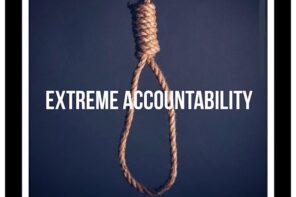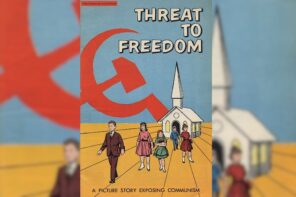Rio Olympics: Great games for LGBT athletes, tough times for LGBT Brazilians
Outsports.com tracked the success of LGBT athletes at the Olympics in Rio, as well as more than a dozen who narrowly missed making the medal podium. Italian Rachele Bruni dedicated her silver medal in the 10k marathon swim “to her girlfriend as well as her family and coach.” Journalist Nico Hines left the country in the wake of controversy over his Daily Beast story, which was eventually deleted, about athletes using the gay hook-up site Grindr. One of his outspoken critics, Tonga’s Amini Fonua, sat down for an interview with reporter Charley Walters.
CBC reported on the rise of Brazil’s far right and soaring anti-LGBT violence. “Brazil legalized same-sex marriage in 2013 and same-sex adoption in 2010,” says the report by Matt Kwong.”But analysts note that the progressive policies have been met with a hard pushback from groups believing the shift from traditional social mores has gone too far.” Kwong reports that in absolute numbers, “there is no deadlier place in the world to be an LGBT person than Brazil.”
The anti-gay presidential candidate Jair Bolsonaro, who approves of torture and endorsed beating children believed to be gay as a means of turning them heterosexual, has gained in popularity. The conservative congressman polled in fourth place in April, according to Foreign Policy.
A congressional bench known as the “BBB” faction — so called because the conservative legislators are primarily concerned with “beef, bullets and the Bible” — is made up of increasingly powerful politicians representing interests from pro-firearms groups, the farm lobby and evangelical Christians.
Evangelical movements are on a steady rise in Brazil, accounting for more than one-fifth of the population in 2010, according to the Instituto Brasileiro de Geografia e Estatística and Fundacao Getulio Vargas.
Televangelists and religious leaders vocal about their opposition to gay-rights legislation are also commanding some political influence, with ties to politicians who filled more than 60 Congressional seats in 2012, according to a report in Americas Quarterly.
[Researcher Sonia] Correa notes that people belonging to right-wing groups have made troubling comments commending the “barbaric murder” of Diego Machado, the 29-year-old gay architecture student whose body was found last month. It was reportedly dumped on the banks of Guanabara Bay, naked below the waist. Machado’s head had been bashed in.
The Chicago Tribune’s Chris Hine also notes recent violence and political problems and writes that LGBT Brazilians are hopeful that the visibility of gay Olympians “can help create a more inclusive atmosphere” in the country.
The rugby venue was nearly empty last week as Brazil’s women’s match was ending.
That was when Olympic staffer Marjorie Enya decided to make her move. She found her girlfriend, Brazilian rugby player Isadora Cerullo and popped the question. Girlfriends became fiancees.
Then two days later, Brazilian judo star Rafaela Silva came out on national TV here after winning a gold medal in these Olympics.
Moments like these happening in Brazil should come as no surprise. The nation has a reputation as a gay-friendly country. Gay marriage became legal here in 2013 and same-sex couples earned the right to adopt children in 2010.
But since the LGBT community has gained more rights in the last decade, a backlash has developed. Evangelical conservatives have gained a stronger foothold in the country’s Congress. Of more concern, violence against and murder of LGBT citizens has increased the last decade, especially against transgender citizens.
Mexico: Catholic Church officials rallying opposition to president’s equality proposal
Catholic Church officials have called for a marches in September opposing President Enrique Peña Nieto’s proposed constitutional changes on marriage equality. Legislative officials have continued to make it clear that they are not terribly interested in acting on the president’s initiative. Activists appealed to legislators to adhere to the constitutions secular principles and so that “religious fundamentalism does not become political fundamentalism.” Cardinal Norberto Rivera continues to lead resistance to marriage equality.
Iraq: Human rights activists urge leaders to embrace religious decree against violence
We reported last month on Shiite religious leader Muqtada Sadr issuing what OutRight International called a “groundbreaking religious decree” prohibiting the use of violence against gender non-conforming individuals. This week Human Rights Watch called on both state and non-state actors to heed the cleric’s statement. An excerpt:
Since early 2009, Human Rights Watch has documented kidnappings, executions, and torture by militia groups, including al-Sadr’s Mahdi Army, of gay men and men perceived to be gay. The killings have continued unabated.
“Finally, the head of one of the groups whose members have carried out serious abuses against lesbian, gay, bisexual and transgender (LGBT) people in Iraq is condemning these heinous attacks,” said Joe Stork, deputy Middle East director. “We hope this will change behavior in successors to the Mahdi Army and other ranks, and spur the government to hold accountable those who commit these crimes.”
A Human Rights Watch report found that in early 2009, Iraqi militia members began a wide-reaching campaign of extrajudicial executions, kidnappings, and torture of men suspected of homosexual conduct, or of not conforming to masculine gender norms, and that Iraq authorities did nothing to stop the killings. The killings began in the Baghdad neighborhood of Sadr City, a Mahdi Army stronghold, and were then replicated by members of militia groups in many cities across Iraq. Mahdi Army spokesmen promoted fear about the “third sex” and the “feminization” of Iraqi men, as well as suggesting that militia action was the remedy.
In 2012, militia members opened a second wave of attacks on people categorized as part of the “emo” subculture, styles that critics associated with heavy metal music, and rap. In early February 2012, signs and fliers appeared in the Baghdad neighborhoods of Sadr City, Hayy al-Habibiyya, and Hayy al-‘Amil that threatened people by name with “the wrath of god” unless they cut their hair short, concealed their tattoos, maintained “complete manhood,” and stopped wearing so-called “satanic clothing.” Similar posters appeared in other neighborhoods, also listing names.
In the following weeks, Human Rights Watch received reports of several dozen youths killed as part of the campaign. While it was unclear who was behind the campaign, at the time al-Sadr called the targets of the campaign “crazy fools” and a “lesion on the Muslim community” in an online statement, but also maintained that they should be dealt with “within the law.”
In a 2015 report, the Iraqi group Iraqueer and the US-based organization OutRight Action International (formerly the International Gay and Lesbian Human Rights Commission) documented the kidnapping and murders of gay men by members of Iraqi militia groups, including the Brigades of Wrath (Saraya al-Ghadhab) and League of the Righteous (Asa’ib Ahl al-Haqq) between 2009 and 2015. The groups condemned the Iraqi government for “stand[ing] by and allow[ing] murderous hate violence to occur, fully aware of what is happening.”
Indonesia: Court considers criminalization in wake of anti-LGBT campaign
As we have been reporting, religious and political leaders have waged a vicious rhetorical campaign against LGBT people in Indonesia this year, and some opponents of LGBT equality have asked the constitutional court to go even further. Human Rights Watch reports on the progress of the Constitutional Court’s consideration of proposed legal changes that would criminalize consensual same-sex sexual activity with penalties of up to five years in prison:
“The proposed criminal sanctions before the Constitutional Court are not only a threat to LGBT people, but to all Indonesians,” said Graeme Reid, LGBT rights director at Human Rights Watch. “Laws that threaten privacy inevitably affect everyone.”
The proposed amendments follow anunprecedented anti-LGBT campaign that began in January with a series of biased and false statements about lesbian, gay, bisexual, and transgender (LGBT) people fromgovernment officials and politicians. The anti-LGBT onslaught provided social sanction for harassment and violence againstLGBT Indonesians, and death threats by militant Islamists. Government institutions, including the National Broadcasting Commission and the National Child Protection Commission, issued censorship directives banning information and broadcasts that portrayed the lives of LGBT people as “normal” as well as so-called “propaganda” about LGBT lives. That combination of discriminatory rhetoric and policy decisions harmed the privacy, security, and free expression rights of people across the country, Human Rights Watch said.
Earlier this month the US State Department encouraged Indonesia “to respect and uphold international rights and standards by ensuring equal rights and protections for all of its citizens.”
Uganda: Profile of advocates for LGBT equality
At the Daily Beast, Tim Teeman profiles LGBT-equality activists in Uganda, where there has been some progress in spite of the recent arrests that shut down a pride week event. The story also examines recent lurid and over-the-top anti-gay rhetoric from Simon Lokodo, Minister for Ethics and Integrity. Lokodo recently told the anti-gay Red Pepper tabloid this he is “asking God to be my shield” as he waged his campaign against the gay-rights movement. He even said he wants the government to invest in a “gadge” made by “the South Koreans” which will “detect homos and porn actors…”
Adrian Jjuuko, the heterosexual executive director of the Human Rights Awareness and Promotion Forum, was part of the case that Sexual Minorities Uganda and the Center for Constitutional Rights have brought against American anti-gay activist Scott Lively, JJuuko sais it could put an end to “evangleicals coming here and importing homophobia,” adding, “You can’t promote hate in other countries. You can’t export hate.”
Jjuuko is optimistic about the long-term prospects for change, even though he currently works behind rows of barbed wire for security:
For Jjuuko, while the present time offers grave challenges, he believes that in his lifetime homosexuality will be legalized in Uganda. “There is no reason why it shouldn’t. Sooner or later Uganda is going to change. Every other country has had its journey. Uganda is having its journey and something will give. Yes, it will happen—it’s just a matter of time.”
Ignorance was the first and most fundamental block to equality, Jjuuko said, followed by evangelical Christianity. Economic development affects social development, he noted: People in poor areas live in such close quarters in Uganda—“there’s no privacy if your bedroom is my sitting room”—and communities are so tightly knit, there is no privacy for LGBTI people to pursue their lives.
After the Anti-Homosexuality Act was passed (and before it was quashed), the number of cases of violence against LGBTI people increased, Jjuuko said. “Trans people are at particular risk of violence: they are the most visible.”
Beatings had been becoming more infrequent, he said. HRAPF met with police on a local level and institutions, but then raids and crackdowns such as the Aug. 4 incident happen and Jjuuko realizes that, for example, “police officers will not speak against police officers,” and so the arduous task of forming effective alliances continues.
Nepal: Activists push for full implementation of constitutional protections
The Associated Press reports that about a thousand members of sexual minorities and their supporters marched “to demand equality and implementation of their rights under the country’s new constitution.” A new constitution banning discrimination on the basis of sexuality was adopted last year but has not yet been fully implemented.
The marchers carried banners saying, “We should not be deprived of our rights. We demand implementation of the rights guaranteed by the new constitution.”
Among the supporters in the march was U.S. Ambassador to Nepal Alaina B. Teplitz.
The parade has been held annually for the past few years on Gaijatra, a Hindu festival to remember the dead, when people are traditionally allowed to cross dress.
Belarus: LGBT rights at ‘critical juncture’
Human Rights First says the country and its LGBT movement are at a “critical juncture.” In May, President Alexander Lukashenko signed a law whose provisions “seem to emulate Russian’s infamous propaganda law,” and which will go into effect next year.” While the sections do not explicitly mention ‘homosexuality,’ they ban information that ‘encourages habits contradicting the development of a healthy lifestyle’ and/or ‘that discredits the institution of the family and marriage.’”
Americas: Action at OAS and Inter-American Commission on Human Rights
The Inter-American Commission on Human Rights (which has faced serious institutional challenges this year) welcomed some recent progress on the human rights of LGBTI people, noting specifically improvements in Argentina, Bolivia, Chile, Colombia, Costa Rica, Ecuador, Guatemala, Mexico, Peru, the
United States, and Uruguay. The report covers areas such as education, labor, health care, and protections against discrimination and violence. Last year the IAHCR released a major report on anti-LGBTI violence in the Americas.
The anti-LGBT C-Fam complains that the Organization for American States is emerging as a “global LGBT rights advocate.” Marianna Orlandi writes, “Uruguay’s lead is particularly striking, since 45 percent of its population self-identifies as Roman Catholic, and the Uruguayan bishops have persisted in their criticism of both the reproductive rights and the LGBT agendas.” Orlandi hopes that when OAS Secretary General Luis Almagro “may be persuaded to relent his promotion of the [LGBT] agenda” when he meets with Pope Francis in September for an interreligious dialogue being co-sponsored with the Vatican.
The New Civil Rights Movement profiles six openly gay US ambassadors. The Washington Blade’s Michael Lavers notes that Republican vice presidential candidate Mike Pence, a longtime ally of the Religious Right, opposed efforts to promote LGBT human rights abroad when he was a member of Congress.
Antarctica: Marriage equality coming to British Antarctic Territory
The British Antarctic Territory is reviewing is marriage and registration ordinances “to bring them into line with domestic UK changes such as same-sex marriage.”
Gibraltar: Government proposes marriage equality legislation
The government of Gibraltar is proposing legislation to allow same-sex couples to marry legally; the changes will explicitly protect the rights of houses of worship to continue to make their own decisions about what couples to bless.
Poland: Marriage equality may be years away but five couples fighting for their rights
Worldcrunch reports on five gay and lesbian couples who “have decided to publicly fight for their fight to get married” in a country that is “home to a diehard traditional Catholicism that some say was even too pious for Pope Francis. The couples’ attempts to marry have been rejected by city officials.
Krzysztof Łoś and Grzegorz Lepianka have been together for 13 years. “Having to explain why I want to get married with somebody that I love is itself an insult,” Lepianka told Newsweek Polska. “What could be the reason after 13 years together, apart from the fact that I love him? We really love each other and we want the country to acknowledge it.”
The couples have established the Coalition in Aid of Civil Partnerships and Marriage Equality, and are taking their cases to the European Court of Human Rights in Strasbourg.
Indeed Italy, another country with a close relationship with the Catholic Church, also took a European path to finally recognize same-sex unions earlier this year — though that path began way back in 2002.
Still, change has been accelerating, and today only six EU countries do not have any laws allowing for same-sex marriage or civil partnerships: Bulgaria, Latvia, Lithuania, Romania and Poland. But in Poland, at least, the ball is now rolling.
Sweden: Government prepared to deport Liberian soccer player
The Scotsman reports that Sweden is preparing “to deport an openly gay footballer back to his native Liberia.” Andrew Nagbe was arrested detained during Stockholm pride celebrations; officials have said his claim to be gay and is fear of persecution in Liberia are not “verifiable.” But the 22-year-old Nagbe said that everyone in Liberia now knows that he is gay. “In prison I’ll be beaten and raped every day until I am released and leave the country again,” he said.
Turkey: Prominent trans activist murdered
The murder of prominent transgender activist Hande Kader has drawn unusual attention even in the midst of the government’s current restrictions on demonstrations, reports the BBC.
Canada: Prime Minister celebrates pride in Montreal
Prime Minister Justin Trudeau continued his appearances at pride celebrations, adding Montreal to earlier appearances in Toronto and Vancouver.
Sri Lanka: Challenges for gender-nonconforming people
Human Rights Watch issued a report on discrimination and abuse faced by people who challenge gender norms.
Myanmar: Activists urge inclusion of LGBT people under legislation on violence against women
The Myanmar Times examines ongoing conversations about protecting LGBT people under a draft law on the prevention of violence against women. Same-sex relations are still criminalized under the country’s colonial-era penal code.
Japan: Ad agency creates think tank to help companies understand LGBT market
A major advertising company has created a think tank to “cater to the newfound need among Japanese firms to learn more about sexual minorities, including support to expand into this new market.” More from Japan Times:
The LGBT market is still largely uncharted territory in Japan, and there is room for companies to explore it through new services or products, institute CEO Takahiko Morinaga said.
“In the world of marketing, it’s still only about (straight) men or women, and the presence of LGBT consumers has been forgotten. … Being a gay person myself, I’ve always felt that was such a waste of opportunities,” said Morinaga, 33, who won an in-company competition to start the venture. “By turning our eyes to (LGBT people), I believe we can create products or services that we’ve never seen before.”




